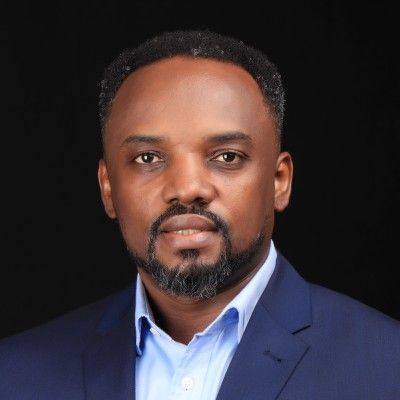SILVER SPRING — It is official: July was the hottest month on record. Global warming is happening, and its costs continue to mount. The World Meteorological Organisation recently noted that, “Extreme weather, climate and water-related events caused 11,778 reported disasters between 1970 and 2021, with just over 2 million deaths and $4.3 trillion in economic losses”.
Like a pandemic, climate change affects everyone, everywhere. In Canada, the Northwest Territories’ capital, Yellowknife, was recently evacuated, as hundreds of wildfires scorched the region, while the United States faces a resurgence of mosquito-borne infectious diseases such as malaria, West Nile virus, and dengue fever. In parts of Asia, severe monsoon rains have caused floods and destroyed livelihoods. In Malawi, two destructive storms compounded a protracted cholera outbreak that claimed more than 1,600 lives. The list goes on.
But the effects are not distributed evenly: Nine in ten deaths and 60 per cent of economic losses from climate shocks and extreme weather are indeveloping countries. I have seen first-hand the devastating impact of landslides in Nanka, my hometown in southeastern Nigeria. Over the years, the increase in gully erosion has wiped out homesteads, destroyed farmlands, and contributed to rising food insecurity.
The disastrous consequences of climate change are reminiscent of the COVID-19 pandemic, which killed more than six million people, destroyed businesses and livelihoods, and ravaged the world economy. In fact, the global response to COVID-19, now an ongoing health issue, rather than an emergency, holds important lessons for mitigating global warming.
For starters, climate change constitutes what the World Health Organisation (WHO) calls a public health emergency of international concern (PHEIC) and should be treated as such. Global warming certainly meets the WHO’s typical definition of a PHEIC: “An extraordinary event which is determined to constitute a public health risk to other states through the international spread of disease and to potentially require a coordinated international response.” But the Intergovernmental Panel on Climate Change (IPCC), rather than the WHO, is better positioned to lead the charge, since italready provides governments with scientific information to develop climate policies.
Second, the Global South must assume a larger climate leadership role. The underrepresentation of African health leaders in the construction of the COVID-19 Vaccine Global Access (COVAX) facility, for example, dealt a major setback to the global pandemic response. Gavi, the Vaccine Alliance, together with the Coalition for Epidemic Preparedness Innovations and the WHO, had created COVAX to ensure equitable access to COVID-19 vaccines, but the initiative, which was conceived with a colonial mindset, fell far short of this ideal.
The IPCC has made the same mistake: Only a small percentage of the authors of its reports are from Africa. As I have argued elsewhere, leaders from Africa, which bears a disproportionate burden of the effects of climate change and contributed the least to the global emissions that are driving it, must be at the center of decision-making processes.
Third, governments must take steps to counter misinformation and disinformation. Falsehoods ran rampant during the pandemic, resulting in aninfodemic, a surplus of both legitimate and misleading information. With nearly five billion users worldwide, social-media platforms accelerated the spread of fake COVID-19 claims. But policymakers and academics could also use them to set the facts straight.
To educate the public about climate change, its consequences and how to build a greener world, more scientists and other experts should post on social-media platforms and engage with other users. Worryingly, of the users who tweeted regularly about global warming and biodiversity, nearly half had become inactive six months after Elon Musk took over Twitter, now called X, and created more space for false information to flourish.
Fourth, all countries should pay their fair share for global response efforts. During the pandemic, wealthy countries were encouraged to provide financing to help low- and middle-income countries access COVID-19 vaccinations, tests and medicines, with mixed results.
Similarly, wealthy countries bear a moral responsibility to provide climate aid to poorer countries, owing to their historical emissions. Last year, the United Nations Climate Change Conference (COP27) took an important step in this direction with the creation of a loss and damage fund for developing countries facing the effects of global warming. But as commendable as this measure was, vulnerable countries must also improve governance and combat corruption to mitigate climate change. For example, $9 billion worth of gold is smuggled out of Nigeria annually. The government could have invested that lost revenue in environmental projects, like preventing landslides in Nanka.
Lastly, hoarding is futile when tackling crises that are truly global in scope. During the COVID-19 pandemic, many countries in the Global North exacerbated inequity by stockpiling personal protective equipment, tests, vaccines, and therapeutics, and by clinging to intellectual-property protections. Yet infectious diseases do not respect borders; nor does climate change. Every country in the world is experiencing its devastating consequences, albeit in different forms.
Addressing climate change requires viewing and understanding the global community as one entity. My tribe in Nigeria, the Igbo, has a phrase that underscores the importance of acting collectively: Ìgwèbụ̀íké. It means “we are stronger together when we are united.” The COVID-19 pandemic demonstrated the necessity of an equitable model of global governance if we are to have any hope of bequeathing a healthy planet to future generations.
Ifeanyi M. Nsofor, a senior New Voices fellow at the Aspen Institute, is a senior Atlantic fellow for Health Equity at George Washington University and an innovation fellow at PandemicTech. Copyright: Project Syndicate, 2023. www.project-syndicate.org
